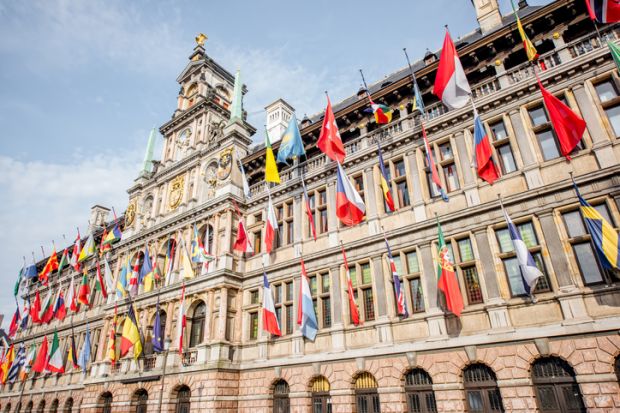On 3 February, Italy chose to prioritise national stability as its governing coalition re-elected Sergio Mattarella as president. Even though some say the 80-year-old will not serve his full seven-year term, his re-election sends an important message to foreign markets and governments that Italy will stick to its plans for the use of billions of euros in post-Covid stimulus funding.
This funding, provided by the European Union to all member states, represents a once-in-a-generation opportunity to make long-term structural reforms – but formulating and implementing that vision will be a marathon, not a sprint.
Italy’s particular recovery and resilience plan (RRP) has allocated an unprecedented budget to higher education and research: almost €20 billion (£16.7 billion). We have to make sure that we can turn it into effective, concrete, practical action, regardless of the results of the next parliamentary election (which must be held before next June). A firm hand will be necessary.
The same is true of Europe as a whole. Squeezed geopolitically between Russia and the US and lagging far behind China’s unattainable rate of economic growth, the continent needs to affirm a shared identity and implement an enduring socio-economic vision. Diplomats are already working towards closer collaboration on defence, and the Eurozone countries have adopted a common stance on investment in energy savings and other climate mitigation programmes.
That is the context in which last month Margaritis Schinas, the EU’s commissioner for promoting the European way of life, and Mariya Gabriel, commissioner for innovation, research, culture, education and youth, announced a European strategy for universities.
Europe has great potential when it comes to education and research. It is home to nearly 5,000 higher education institutions, 17.5 million tertiary education students, 1.35 million tertiary education teachers and 1.17 million researchers. But all of that brain power could be marshalled more effectively through common plans, synergies and combined efforts.
Back in September 2017, in his well-known Sorbonne speech, French president Emmanuel Macron proposed to create at least 20 border-straddling “European Universities” by 2024 – and, beyond that, to create “a network of universities across Europe”.
The EU’s university strategy expands the target to 60 institutions by mid-2024, encompassing 500 existing universities across the continent. More than 40 have already been established.
France’s presidency of the Council of the European Union, which runs until June, also plans to convene a “European academy’”, bringing together 100 or so European intellectuals from across the continent “to shed light on the European debate”.
A six-month EU presidency is not enough to recreate a European identity or forge a truly borderless academy. For instance, we cannot ignore the unevenness of European budgets; Italy spends 1.4 per cent of its GDP in research compared with France’s 2.2 per cent and Germany 3.1 per cent. How can we handle this disparity?
However, Covid-19 has provided us with a positive shock. It has accelerated an ongoing process of unification in higher education and strengthened our common values as a single European cultural entity. It has also presented us with an unexpected opportunity to formulate a strong European policy for higher education that will be self-sustaining even when it is not a political priority.
At the core of Europe’s educational identity are values such as the importance of mutual relationships, the nurturing of talent, the mobility of people and ideas, and the promotion of complex thinking and critical attitudes. These are also wider European values. That is is why universities should not be restructured exclusively from the inside post-Covid; they should be considered nodes in a wider pan-continental social network.
Our priority should be to strengthen strategic partnerships and boost cohesion within the EU on game-changing topics such as digital transformation, sustainable development, neuroscience and biotech. Research should be considered a key enabling factor of change when we discuss artificial intelligence, big data or space technologies.
Of course, this enhancement of collaboration has already been happening from the bottom up. Over the past decade, top-class universities throughout the continent have been forging alliances, mobility programmes and collaborative research. These connections have strongly contributed to combatting growing nationalism and divisive policies.
However, it is also undeniable that the strength and speed of such initiatives’ socio-economic impact could be enhanced by a firm political consensus among member states that collaboration is indeed the way to go.
European universities are on the road to ever-greater collaboration – but the politicians must do their best to keep that road clear of hazards.
Ferruccio Resta is rector of Politecnico di Milano.
Register to continue
Why register?
- Registration is free and only takes a moment
- Once registered, you can read 3 articles a month
- Sign up for our newsletter
Subscribe
Or subscribe for unlimited access to:
- Unlimited access to news, views, insights & reviews
- Digital editions
- Digital access to THE’s university and college rankings analysis
Already registered or a current subscriber?









